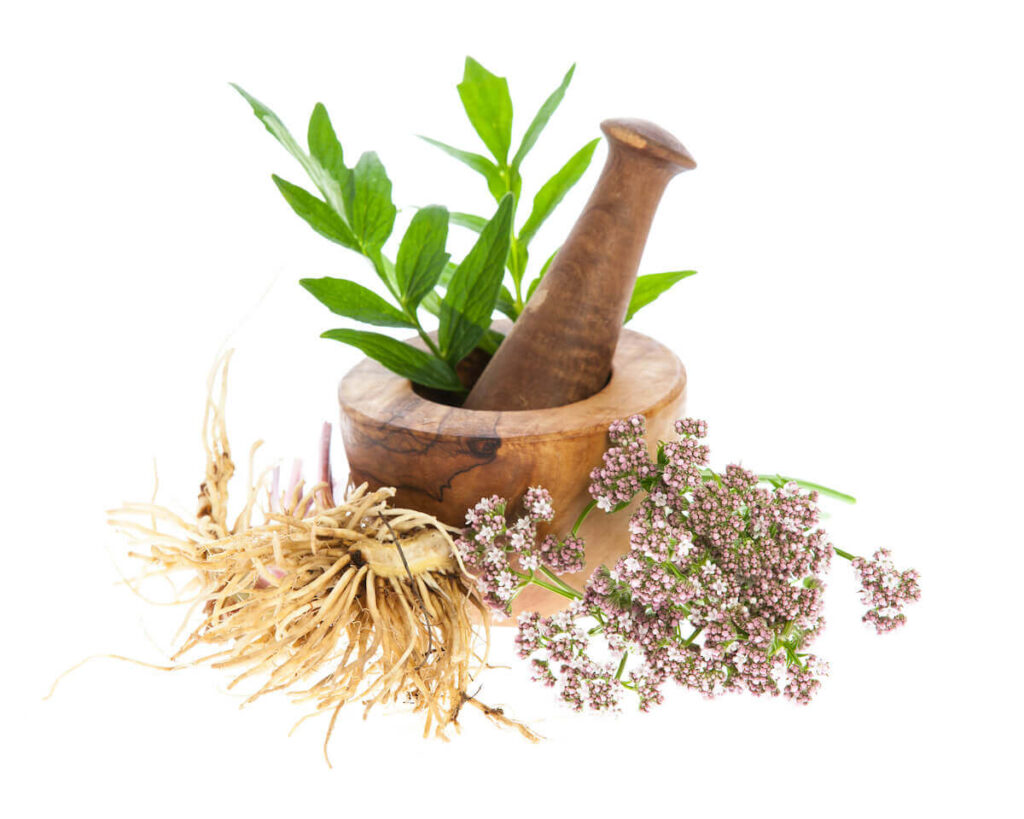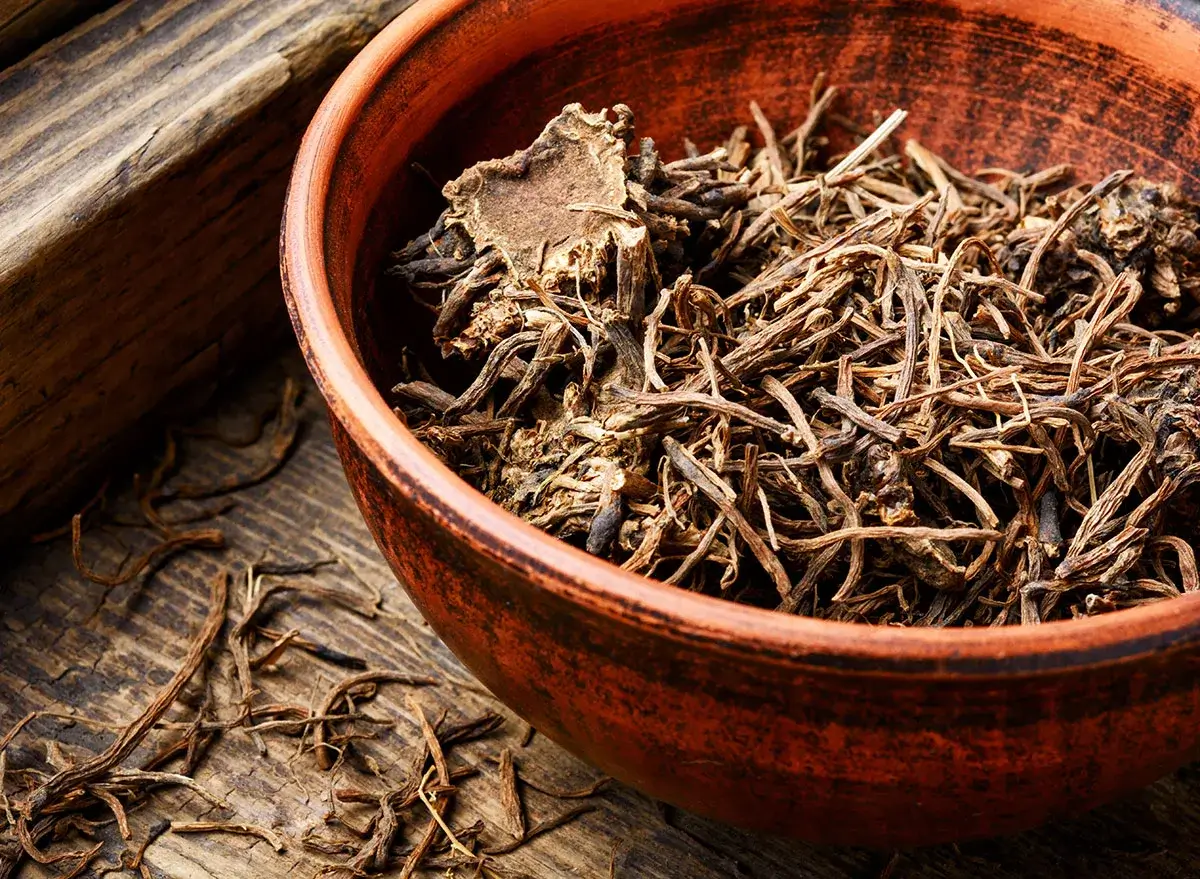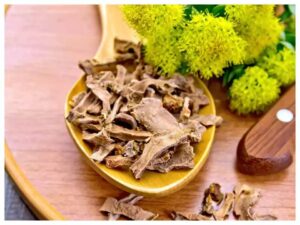Valerian Root for Sleep: The Benefits and How it Works
Valerian root is a natural supplement that has been used for centuries to promote relaxation, reduce anxiety, and improve sleep. It is derived from the root of the Valeriana officinalis plant and is available in various forms, including capsules, tablets, tinctures, and teas. In recent years, valerian root has gained popularity as a natural alternative to prescription medications for the treatment of anxiety and sleep disorders. In this article, we will explore the benefits of valerian root for health.
The History of Valerian Root
Valerian root is native to Europe and Asia, and has a long history of use in traditional medicine dating back to the ancient Greeks and Romans. The Greeks and Romans utilized valerian root as a remedy for a variety of ailments, including sleep disorders and digestive issues. In the Middle Ages, valerian root was used as a remedy for anxiety and stress, and as a sedative to promote sleep.
The Modern Discovery of Valerian Root
In the late 19th and early 20th centuries, interest in valerian root was reignited, and researchers began to investigate its potential as a natural remedy for sleep and anxiety. Clinical studies were conducted and the results confirmed the effectiveness of valerian root for these purposes.
The Chemical Components of Valerian Root
Valerian root contains a number of active compounds, including valerenic acid and valepotriates, that are believed to be responsible for its calming and sedative effects. Research has also identified other compounds in valerian root that may contribute to its ability to promote relaxation and sleep, including compounds that have a mild sedative effect and others that act as natural tranquilizers.

Benefits of Valerian Root for Health
Valerian Root and Anxiety
Anxiety is a common condition that affects millions of people worldwide. It is characterized by feelings of worry, fear, and nervousness. While there are many medications available to treat anxiety, some people prefer natural remedies. Valerian root is one such remedy that has been shown to be effective in reducing anxiety.
Valerian root contains compounds that act on the gamma-aminobutyric acid (GABA) system in the brain. GABA is a neurotransmitter that helps to calm the nervous system and reduce anxiety. When GABA levels are low, anxiety can be heightened. Valerian root helps to increase GABA levels, which in turn reduces anxiety.
Several studies have investigated the effectiveness of valerian root in reducing anxiety. A 2011 study published in the Journal of Ethnopharmacology found that valerian root was effective in reducing anxiety in patients undergoing dental treatment. Another study published in Phytotherapy Research in 2013 found that valerian root was effective in reducing anxiety in women undergoing a breast biopsy. Overall, these studies suggest that valerian root can be an effective natural remedy for anxiety.
Valerian Root and Sleep
Sleep is essential for good health, yet many people struggle with getting a good night’s rest. Insomnia is a common sleep disorder that affects millions of people worldwide. While there are many medications available to treat insomnia, some people prefer natural remedies. Valerian root is one such remedy that has been shown to be effective in improving sleep.
Valerian root contains compounds that act on the GABA system in the brain. GABA helps to calm the nervous system and promote relaxation, which can help to improve sleep. When GABA levels are low, sleep can be disrupted. Valerian root helps to increase GABA levels, which in turn improves sleep.
Several studies have investigated the effectiveness of valerian root in improving sleep. A 2010 study published in the Journal of Clinical Sleep Medicine found that valerian root was effective in improving sleep quality in patients with insomnia. Another study published in the European Journal of Medical Research in 2006 found that valerian root was effective in improving sleep quality and reducing the time it takes to fall asleep. Overall, these studies suggest that valerian root can be an effective natural remedy for insomnia.
Valerian Root and Menopause
Menopause is a natural process that occurs in women as they age. It is characterized by the cessation of menstrual periods and a decrease in hormone levels. Menopause can cause a variety of symptoms, including hot flashes, mood changes, and sleep disturbances. While there are many medications available to treat menopausal symptoms, some women prefer natural remedies. Valerian root is one such remedy that has been shown to be effective in reducing menopausal symptoms.
Valerian root contains compounds that act on the GABA system in the brain. GABA helps to calm the nervous system and reduce anxiety, which can help to reduce menopausal symptoms. When GABA levels are low, menopausal symptoms can be heightened. Valerian root helps to increase GABA levels, which in turn reduces menopausal symptoms.
Several studies have investigated the effectiveness of valerian root in reducing menopausal symptoms. A 2013 study published in the Journal of Alternative and Complementary Medicine found that valerian root was effective in reducing the frequency and severity of hot flashes in menopausal women. Another study published in the journal Menopause in 2011 found that valerian root was effective in improving sleep quality and reducing anxiety in menopausal women. Overall, these studies suggest that valerian root can be an effective natural remedy for menopausal symptoms.
Valerian Root and Pain
Pain is a common condition that affects millions of people worldwide. It can be caused by a variety of factors, including injury, inflammation, and chronic conditions. While there are many medications available to treat pain, some people prefer natural remedies. Valerian root is one such remedy that has been shown to be effective in reducing pain.
Valerian root contains compounds that act on the GABA system in the brain. GABA helps to calm the nervous system and reduce pain. When GABA levels are low, pain can be heightened. Valerian root helps to increase GABA levels, which in turn reduces pain.
Several studies have investigated the effectiveness of valerian root in reducing pain. A 2015 study published in the Journal of Pain Research found that valerian root was effective in reducing pain in patients with fibromyalgia. Another study published in the Journal of Evidence-Based Complementary and Alternative Medicine in 2016 found that valerian root was effective in reducing pain and improving sleep in patients with chronic lower back pain. Overall, these studies suggest that valerian root can be an effective natural remedy for pain.
Valerian Root and Digestion
Digestive issues are a common problem that affects many people. They can be caused by a variety of factors, including stress, poor diet, and certain medical conditions. While there are many medications available to treat digestive issues, some people prefer natural remedies. Valerian root is one such remedy that has been shown to be effective in improving digestion.
Valerian root contains compounds that act on the nervous system and promote relaxation. When the body is relaxed, digestion can improve. Valerian root also contains compounds that can reduce inflammation in the digestive system, which can improve digestive health.
Several studies have investigated the effectiveness of valerian root in improving digestion. A 2016 study published in the Journal of Ethnopharmacology found that valerian root was effective in reducing inflammation in the digestive system and improving digestion in rats. Another study published in the Journal of Medicinal Food in 2017 found that valerian root was effective in reducing symptoms of irritable bowel syndrome in humans. Overall, these studies suggest that valerian root can be an effective natural remedy for digestive issues.
Valerian Root and Heart Health
Heart disease is a leading cause of death worldwide. It is a condition that affects the heart and blood vessels and can lead to heart attacks, strokes, and other serious health problems. While there are many medications available to treat heart disease, some people prefer natural remedies. Valerian root is one such remedy that has been shown to be effective in improving heart health.
Valerian root contains compounds that can reduce inflammation in the body. Inflammation is a key factor in the development of heart disease. Valerian root also contains compounds that can lower blood pressure, which is another risk factor for heart disease.
Several studies have investigated the effectiveness of valerian root in improving heart health. A 2015 study published in the Journal of Pharmacy and Pharmacology found that valerian root was effective in reducing blood pressure in rats. Another study published in the International Journal of Cardiology in 2014 found that valerian root was effective in reducing inflammation in the body and improving heart function in humans. Overall, these studies suggest that valerian root can be an effective natural remedy for heart disease.
Valerian Root and Cognitive Function
Cognitive function refers to the mental processes that enable us to think, reason, and remember. As we age, cognitive function can decline, leading to problems with memory and thinking. While there are many medications available to improve cognitive function, some people prefer natural remedies. Valerian root is one such remedy that has been shown to be effective in improving cognitive function.
Valerian root contains compounds that can improve blood flow to the brain. Improved blood flow can help to nourish brain cells and improve cognitive function. Valerian root also contains compounds that can reduce inflammation in the brain, which can improve cognitive function.
Several studies have investigated the effectiveness of valerian root in improving cognitive function. A 2016 study published in the Journal of Ethnopharmacology found that valerian root was effective in improving memory and cognitive function in rats. Another study published in the Journal of Psychopharmacology in 2014 found that valerian root was effective in improving cognitive function in humans. Overall, these studies suggest that valerian root can be an effective natural remedy for cognitive decline.
Conclusion
Valerian root is a natural supplement that has been used for centuries to promote relaxation, reduce anxiety, and improve sleep. It is also effective in reducing menopausal symptoms, pain, and improving heart health, digestive health, and cognitive function. While valerian root is generally considered safe, it can cause side effects in some people. Before taking valerian root, it is important to consult with a healthcare provider to determine if it is safe for you. Overall, valerian root can be an effective natural remedy for a variety of health conditions.

Valerian Root: The Nutritional Powerhouse
Valerenic acid
Valerenic acid is a volatile oil found in valerian root that is believed to be responsible for its sedative effects. This compound acts as an inhibitor of the breakdown of the neurotransmitter GABA, which helps to calm the central nervous system and promote relaxation.
Gamma-Aminobutyric Acid (GABA)
GABA is an inhibitory neurotransmitter that helps to regulate the activity of nerve cells in the brain. It plays a crucial role in promoting relaxation and reducing anxiety, and valerian root is one of the few natural sources of GABA.
Calcium
Calcium is an essential mineral that is involved in many bodily processes, including muscle contractions, blood clotting, and bone health. Valerian root is a good source of calcium, providing approximately 12% of the recommended daily intake in a single serving.
Iron
Iron is an essential mineral that is necessary for the production of hemoglobin, a protein in red blood cells that carries oxygen from the lungs to the rest of the body. Valerian root is a good source of iron, providing approximately 15% of the recommended daily intake in a single serving.
Vitamin C
Vitamin C is a powerful antioxidant that helps to protect the body from damage caused by free radicals. It also plays a crucial role in the production of collagen, a protein that is important for skin, bone, and connective tissue health. Valerian root is a good source of vitamin C, providing approximately 20% of the recommended daily intake in a single serving.

Consuming Valerian Root: Methods and Considerations
Valerian root is a popular herbal remedy that has been used for centuries to promote relaxation and alleviate stress, anxiety, and insomnia. There are several methods for consuming valerian root, each with its own set of benefits and considerations. In this article, we will explore the different ways to consume valerian root and what to keep in mind when choosing a method.
Valerian Root Tea
One of the most common and straightforward methods for consuming valerian root is by making tea. To make valerian root tea, simply add 1-2 teaspoons of dried valerian root to a cup of boiling water. Let the tea steep for 10-15 minutes, then strain and enjoy. You can drink valerian root tea as needed, although it is recommended to limit your consumption to 2-3 cups per day.
Valerian root tea is an easy and convenient way to consume this herb, and it is also a great option for those who prefer a milder form of valerian. However, some people find the taste of valerian root tea to be unpleasant, so it may not be the best choice for everyone.
Valerian Root Capsules
Another popular method for consuming valerian root is by taking capsules. Valerian root capsules are available over-the-counter and can be found in most health food stores. Capsules typically contain a standardized extract of valerian root, which provides a consistent and concentrated dose of the herb.
When taking valerian root capsules, it is important to follow the instructions on the label carefully. Dosage can vary depending on the product, but most capsules contain anywhere from 400-800 mg of valerian root extract. It is generally recommended to take 2-3 capsules per day, with a full glass of water.
Valerian root capsules are a convenient and easy way to consume valerian root, and they are a great option for those who do not like the taste of tea or who prefer a more concentrated form of the herb. However, some people may experience gastrointestinal side effects when taking valerian root capsules, such as bloating, gas, or nausea.
Valerian Root Tincture
A tincture is a concentrated liquid extract of an herb, and valerian root tincture is another popular method for consuming this herb. To use a valerian root tincture, simply add a few drops to a glass of water or under your tongue and hold for 30 seconds before swallowing.
Valerian root tinctures can be found in most health food stores, and they typically contain a high concentration of valerian root extract. Dosage can vary depending on the product, but most tinctures recommend taking 1-2 droppers full per day.
Valerian root tincture is a fast-acting form of the herb, and it is a great option for those who want to experience the benefits of valerian root quickly. However, tinctures can be strong and potent, so it is important to follow the instructions on the label carefully and start with a low dose before gradually increasing.
Valerian Root: Potential Side Effects and When to Avoid
Valerian root is a popular herbal remedy that is commonly used to promote relaxation and alleviate stress, anxiety, and insomnia. While valerian root is generally considered safe, there are some potential side effects and situations where it should be avoided. In this article, we will explore the potential side effects of valerian root and when it should be avoided.
Potential Side Effects
Valerian root is generally considered safe when used as directed, but some people may experience side effects when consuming this herb. The most common side effects of valerian root include:
Drowsiness
One of the most common side effects of valerian root is drowsiness. This herb is commonly used to promote relaxation and sleep, and it can cause drowsiness in some people. If you are sensitive to drowsiness or if you are planning to operate heavy machinery or drive a vehicle, it is best to avoid valerian root.
Headaches
Some people may experience headaches when taking valerian root. If you are prone to headaches, you may want to avoid this herb or speak to your healthcare provider before taking it.
Nausea and digestive issues
Valerian root can also cause digestive issues in some people, including nausea and bloating. If you are prone to digestive issues, it is best to avoid valerian root or speak to your healthcare provider before taking it.
Allergic reactions
In rare cases, valerian root can cause allergic reactions in some people. Symptoms of an allergic reaction can include itching, hives, and difficulty breathing. If you experience any symptoms of an allergic reaction, it is important to seek medical attention immediately.
When to Avoid Valerian Root
There are several situations where it is best to avoid valerian root. These include:
Pregnancy and breastfeeding
Valerian root is not recommended for women who are pregnant or breastfeeding, as there is not enough research to determine the safety of this herb during these times.
Children
Valerian root is not recommended for children, as there is not enough research to determine the safety of this herb for this population.
Medical conditions
If you have any medical conditions, it is best to speak to your healthcare provider before taking valerian root. This herb may interact with certain medical conditions, such as liver or kidney disease, and it may worsen some medical conditions, such as depression.

The Drug Interactions of Valerian Root
Valerian root is a popular herbal remedy that is commonly used to promote relaxation and alleviate stress, anxiety, and insomnia. While valerian root is generally considered safe, it can interact with certain medications and should be used with caution. In this section, we will explore the drug interactions of valerian root.
Valerian root can interact with certain medications, including sedatives, antidepressants, and anticonvulsants. If you are taking any of these medications, it is important to speak to your healthcare provider before taking valerian root, as it may increase the risk of drowsiness and other side effects.
Valerian root may also interact with alcohol and other substances that cause drowsiness, such as sleeping pills and antihistamines. If you are taking any substances that cause drowsiness, it is important to speak to your healthcare provider before taking valerian root, as it may increase the risk of drowsiness and other side effects.
In addition, valerian root may interact with certain medical conditions, such as liver or kidney disease, and it may worsen some medical conditions, such as depression. If you have any medical conditions, it is important to speak to your healthcare provider before taking valerian root to ensure that it is safe for you and to determine the appropriate dose.
- National Center for Complementary and Integrative Health (NCCIH): https://nccih.nih.gov/health/valerian
- WebMD: https://www.webmd.com/vitamins/ai/ingredientmono-846/valerian
- The National Institute of Mental Health: https://www.nimh.nih.gov/health/topics/anxiety-disorders/index.shtml
- The European Medicines Agency: https://www.ema.europa.eu/en/medicines/herbal/valerian






